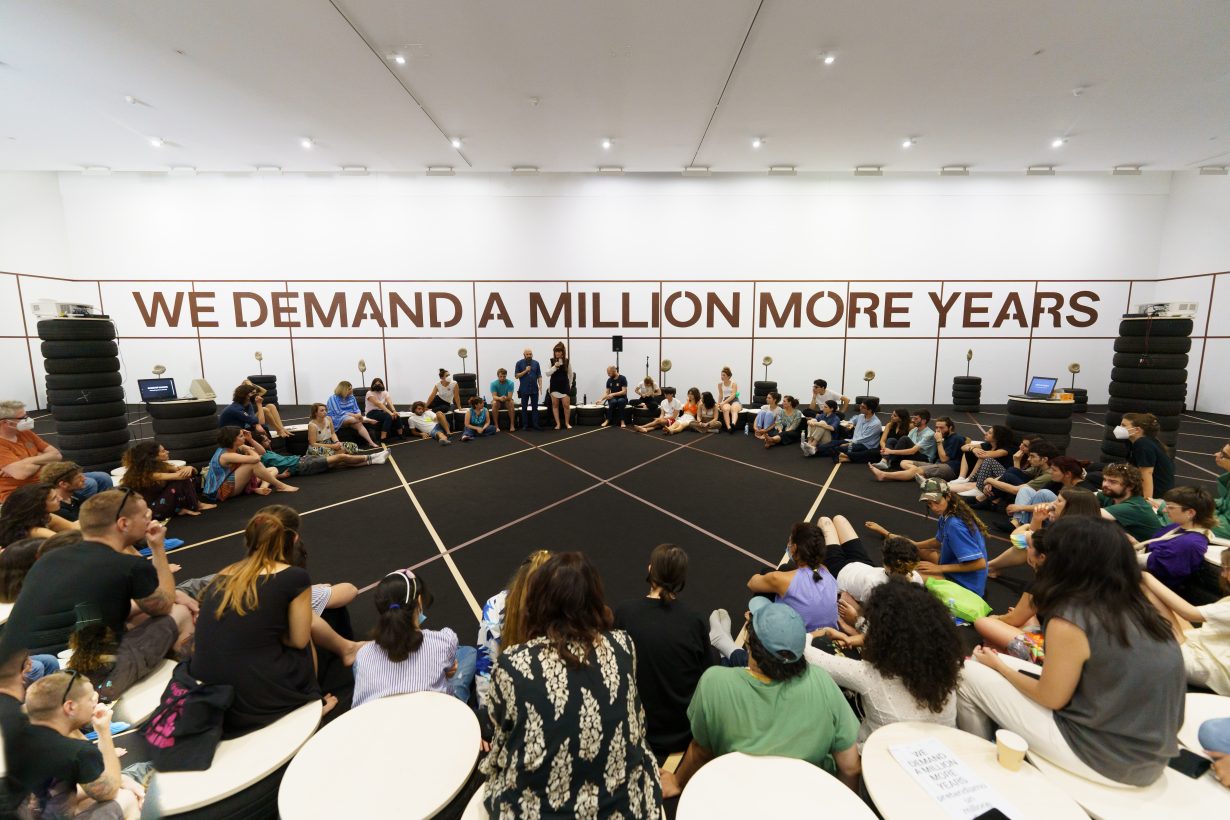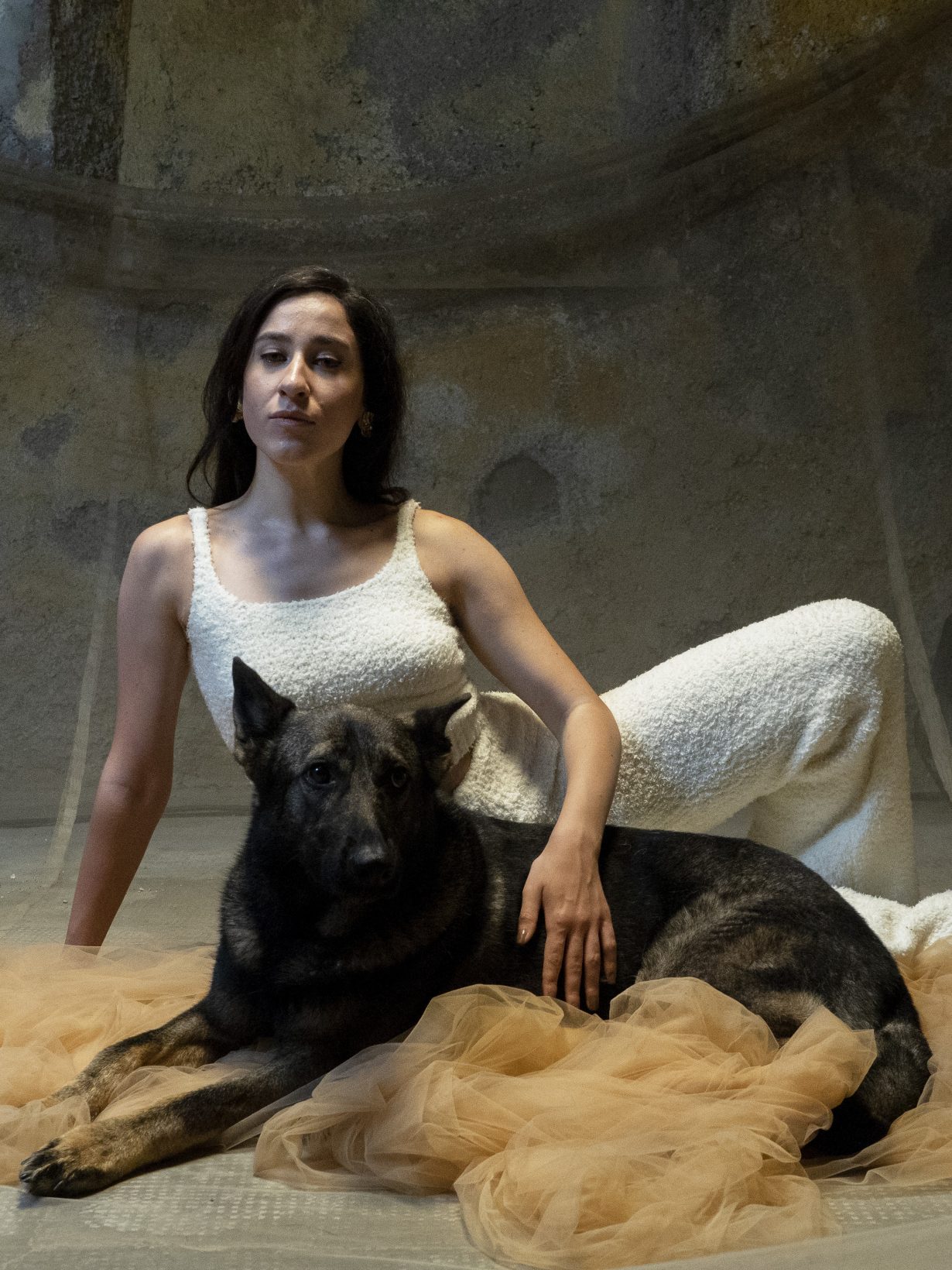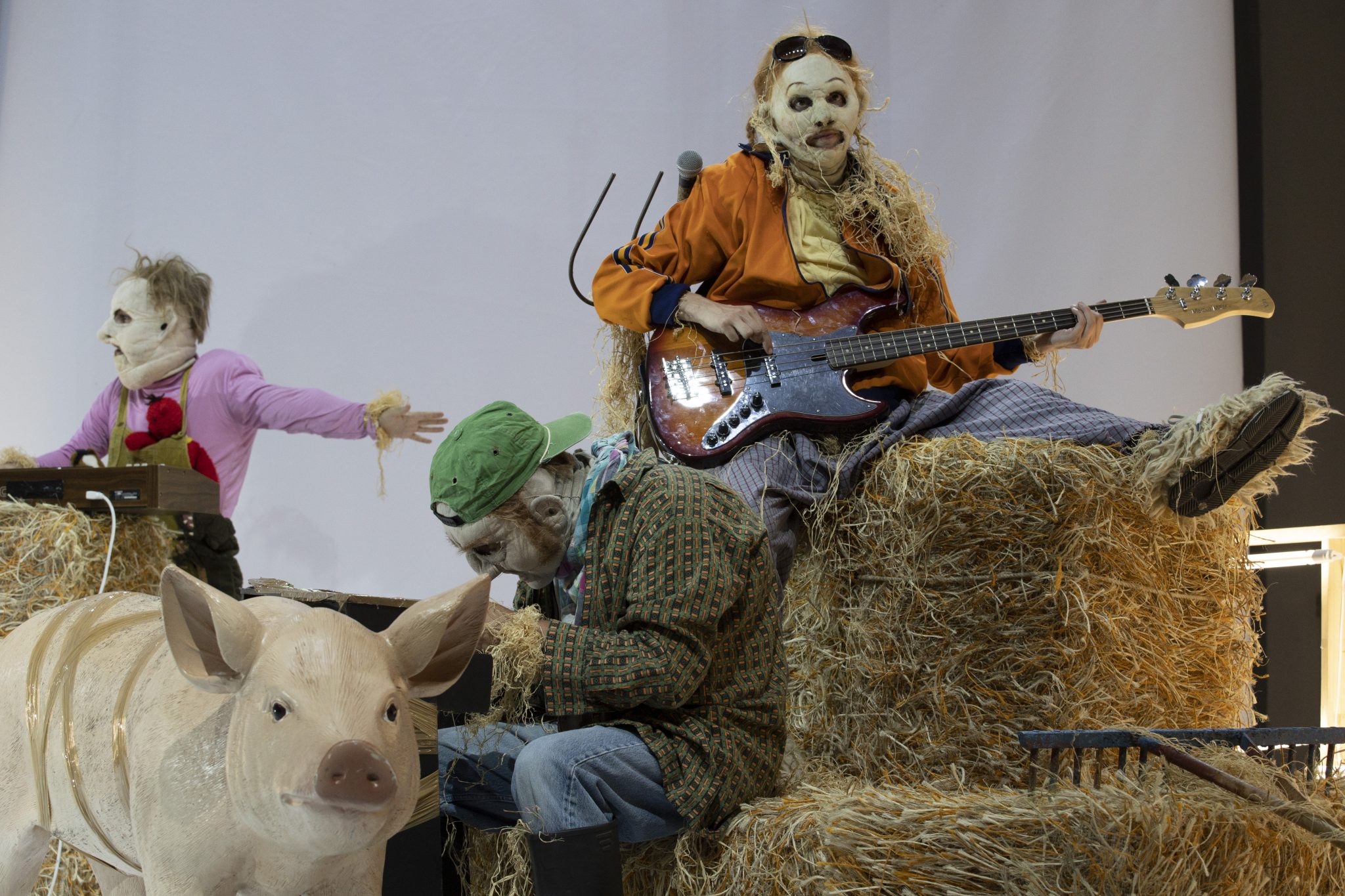Now more than ever
We live in dark times. Looking back at summer, when Italy faced the worst drought in 70 years and a less-rare government collapse, I think of how the art that I got to see in July (at a ‘utopian training camp’ in Fondazione Sandretto Re Rebaudengo in Turin, and as part of the performance festivals at Centrale Fies, Dro, and in Santarcangelo) seemed to be responding to a prevailing mood that the end of the world is nigh – ecologically, economically, socially, pedagogically. Nevertheless, those performances invited audiences to take another look at the world as it is, with new eyes, before it vanishes. From this perspective, performance attempts to act as an exercise in affirmative action.
So, welcome darkness. Time is up at the Fondazione, where Jonas Staal reclaims, via his utopian exhibition-cum-workshop Training for the Future. WE DEMAND A MILLION MORE YEARS, the means of production for a future that is already here. Over three days, the workshops or ‘trainings’ (which any visitor can sign up to) took place in a series of afternoon sessions led by practitioners from a range of disciplines. The trainers in question are tellingly called ‘world builders’. In a session featuring artist and educator Charl Landvreugd, the audience built a collective ‘world’ by placing, moving and replacing a series of objects – among them hairbands, watches and pens – donated by the fellow participants. The trainers supervised this participatory process in which ideas are transformed into actions that reflect a desire to collectively write a possible and more inclusive future. By way of practices such as storytelling, rituals and tarot reading, the trainers tested out a community space that was cooperative and participative, safe and accessible. In this sense time was experienced as a trans-time: a time ruled by the ephemeral, the temporary and the elusive; a time that generates a form of knowledge unrelated to coherence, progression and linear narration, and one that works in illuminations and fragments, embracing a certain amount of randomness and chance.

Similarly, the research centre for performative practices Centrale Fies (located in a former hydroelectric power station in Dro, Trentino) hosted the Live Works Summit, a three-day performance-oriented free school that tries to imagine a future mythology that embraces climate change, queer pain and multi-species parenthood. The result is exhilarating in Philippe Quesne’s postapocalyptic performance Farm Fatale (2019), in which five ecologist scarecrows discuss the effects of climate change, sing pop songs and hold up demonstration signs in a scene made up to look like a dystopian and abandoned farm. The future life imagined in Selin Davasse’s Multiplicity of Asia Minor (2022) is feminine and foregrounds a multi-species society, one that demands a new mythology – a cosmogony with no founding father, but instead a nurturing surrogate mother. Sergi Casero, in El Pacto del Olvido (2022, and titled after the Spanish law approved after Franco’s death in 1975, which prevents legal investigation into crimes committed during the 40 years of dictatorship), insists on the importance of an oral and collective narration of history, especially when the official narratives are silent and criminally forgetful. Time is again embodied in Giulia Crispiani’s Mormorìo (2022), a love letter to bodies that multiply, breathe and pulse as one.

Darkness also invades many of the performances in Santarcangelo. A postapocalyptic scenario appears again, in nomadic theatre company Motus’s performance Tutto brucia (2021), which draws on the myth of Cassandra (a prophet cursed by a jealous god so that no one would believe her premonitions) and mourns the end of a civilisation that’s trapped in its own nightmare, hypnotised by flames while everything around it burns. Sitting under a spotlight in a darkened space, Marina Otero tells her story Love Me (2022, cowritten with Martín Flores Cárdenas): she reveals her scars, and through her body evokes every pain (part of which relates to her departure from Buenos Aires to a new life in Spain) and the effects of time with heartbreaking strength. Meanwhile, Giovanfrancesco Giannini chooses violence in cloud_extended (2022). He forces his half-naked body to emulate poses from his digital archive of images and videos: these range from the French-Italian singer Dalida, to different pictorial renditions of the goddess Venus, to tortured men accused of homosexuality in the Chechen Republic. A sense of togetherness and intimacy fill the dark space in which Alex Baczynski-Jenkins’s Untitled (Holding Horizon) (2018) is performed in fluid, long-lasting movements, something like a rave or a rite, but of the type you never wish to end.
A picture emerges polyphonic, in terms of voices and practices, but quite uniform in premise, needs and hopes. Rituals return in a way that seems to be searching for a new language, but is nevertheless ready to leave behind narratives that can often seem trapped in the nihilist critique. And the same can be said of the rewriting of a mythology for our times. One constantly feels the not-very-reassuring sense of living in a time in need of major rehab. I saw broken people struggling to imagine a future, but working together in order to try. I saw bodies in need of radical softness, bodies that can provide it, bodies seeking to be together only as humans. I’m not sure if this time of darkness has made our eyes more sensitive, but I’m sure emerging from it will come with some pain.
